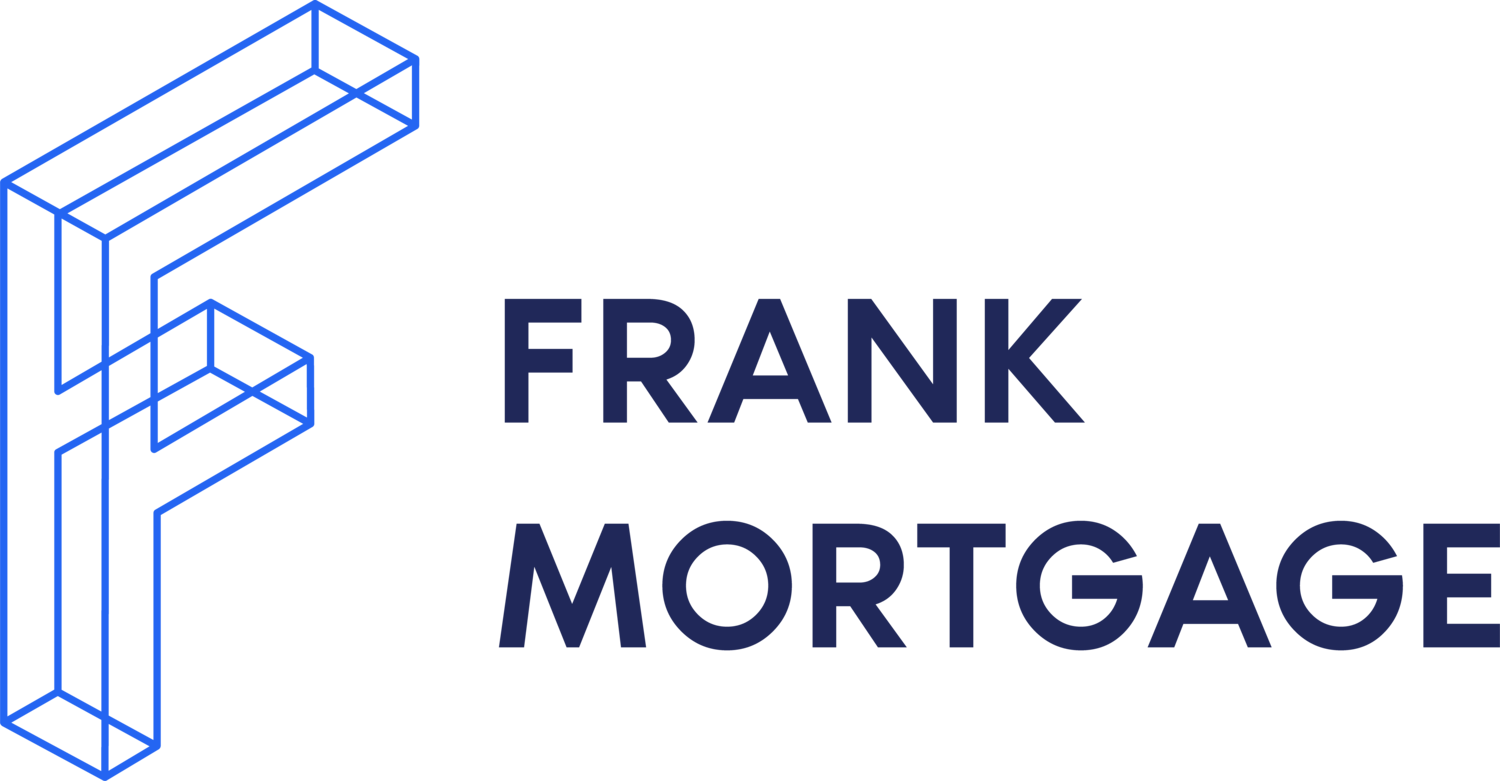First-Time Homebuyers in Canada
A Comprehensive Mortgage Guide

Buying your first home is an exciting milestone and a life changing event. Having a place to call you own, raise a family, and be part of a community is rewarding. If you are a first-time homebuyer (FTHB) where do you start? What is the process for getting a mortgage for a FTHB? What does a mortgage cost? How do you find the best mortgage deal in Ontario, or the best mortgage deal in BC or any other Province in Canada?
This guide aims to arm you with valuable information about the mortgage process for a first-time homebuyer in order to simplify the process. If we help you understand the mortgage market, find your dream home, and navigate the costs involved, then we have done our job. We will cover everything from mortgage types to first-time buyer incentives to ensure you are well-prepared for this significant investment.
Understanding the Mortgage Market
Types of Mortgages in Canada
Mortgages can appear complex simply because most people don’t have the information they need to understand them. To get started, let’s discuss the different mortgage types in Canada. Knowing the different types will help you make informed decisions.
| Mortgage Type | Key Mortgage Features |
|---|---|
| Prime Mortgage (aka A-Mortgage) | For borrowers with good income and good credit |
| Provided by large institutional lenders like banks, credit unions and monoline lenders | |
| Lowest mortgage rates | |
| Must pass mortgage stress test | |
| Non-prime Mortgage (aka B-Mortgage or Alt-Mortgage) | For borrowers that don’t meet prime lending criteria – most often due to low or hard-to-verify income or poor credit |
| Provided by a limited number of institutional lenders like mid-size banks & some monoline lenders | |
| Higher rates than prime mortgage, plus lenders (and some mortgage brokers) charge fees | |
| Usually must pass the mortgage stress test | |
| Private Mortgage | Only suitable for those who cannot get an A-mortgage or a B-mortgage and that have an exit plan |
| Provided by a private mortgage lender | |
| High mortgage rates and fees | |
| Terms typically range from 1 to 2 years |
Within those three categories of mortgage there are then some common mortgage options in Canada.
Here is a breakdown:
| Mortgage Type | Key Mortgage Features |
|---|---|
| Fixed-Rate Mortgage | Interest rate remains constant for term of mortgage |
| Predictable monthly payments | |
| Terms typically range from 1 to 10 years | |
| Often have material prepayment penalties | |
| Variable-Rate Mortgage | Interest rate fluctuates based on the prime rate |
| Some have payments that will change over time | |
| Terms typically range from 1 to 10 years | |
| More moderate prepayment penalties | |
| Hybrid Mortgage | Contains a portion that is fixed-rate and a portion that is variable-rate |
| Open Mortgage | Allows for prepayment without penalties |
| More payment flexibility but higher interest rates | |
| Home-equity line of credit (HELOC) | A revolving credit line secured by your home |
| Interest rate fluctuates based on the prime rate | |
| Higher interest rates than variable-rate mortgages | |
| Short-term demand loans | |
| No amortization schedule so no mandatory principal payments |
Determine How Much Home You Can Afford
Before you start house hunting, it is crucial to know how much you can afford to spend on a new home.
To investigate what a mortgage may cost, you can start with our mortgage-payment-calculator to evaluate mortgage payments for different potential mortgage amounts.
When looking into affordability consider these factors:
Income: Your gross annual income is the starting point. It is important for you to understand how much of your income will be required to make your mortgage payments. Lenders typically use a maximum gross debt service (GDS) ratio and total debt service (TDS) ratio to determine affordability. See our blog post here for information about these ratios - Frank-Mortgage-GDS-TDS-Ratio.
Down Payment: In Canada, the minimum down payment is 5% for homes under $500,000. For homes priced between $500,000 and $999,999, the minimum is 5% on the first $500,000 and 10% on the remaining amount. For either of these you can get a mortgage with default insurance that allows you to have such small down payments. Without default insurance, a minimum 20% down payment is required. Note also that homes over $1 million in value are not eligible for default insurance so a minimum down payment of 20% is required.
A larger down payment will reduce the mortgage amount you need to borrow. This will reduce your debt service costs over time. Also, with a down payment of 20% or more, you can avoid paying the premium for mortgage default insurance.
Saving for a down payment can be challenging, especially in high priced housing markets. Using a first-home-savings-account (FHSA) is a great way to start saving for first-time homebuyers. It is also possible to make a tax-free withdrawal of some funds from your RRSP account tax contribute to a down payment. A down payment may be daunting but remember that it is the start of you building equity in your property.
Home Purchase Closing Costs: Once you figure out how much a mortgage will cost you make sure to look into other costs required to purchase a home. These include land transfer tax (rebates are available in Ontario, BC, and PEI), legal fees, home inspection fees, GST or HST on new build homes, title registration fees and possibly title insurance.
Mortgage Closing Costs: Getting a mortgage also requires payment of some fees. These include fees to lawyers and appraisers. You may also have to pay PST on mortgage default insurance if you are in Ontario, Quebec, or Saskatchewan. If you are getting a B-mortgage or a private mortgage, you will be charged a mortgage origination fee payable to the lender and sometimes also to the mortgage broker.
Your mortgage lender will want to be sure you have sufficient funds on hand to pay the closing costs in addition to the down payment.
Costs of Homeownership: Make sure you have room in your budget for the other costs of owning a home that include property taxes, utilities, maintenance, and insurance.
Don’t be frightened by all this information. Yes, there is a lot to know. But it is not rocket science. Just be prepared and plan your budget accordingly.

The Mortgage Process
There is a process to follow to buy a home and get the mortgage you need. The standard steps in this process are:
Pre-Approval: Before you start house hunting, get pre-approved for a mortgage. Realtors and most sellers will want to know beforehand that you are eligible for financing and a pre-approval will show that. This involves submitting financial documents to a lender who will then estimate how much you can borrow. A mortgage broker can help you get a quick mortgage pre-approval.
Home Search: Work with an experienced real estate agent to a) find homes that fit your criteria and budget and b) to help you negotiate offers. Keys to a good home search include:
- Define Your Needs. List your must-haves versus nice-to-haves. This will narrow down the list of homes you should look at and help optimize your time.
- View Multiple Properties. Don’t settle for the first home you see. Visit several properties to get a sense of what is available and what you like.
- Research the Neighborhood. Look into crime rates, school ratings, availability of parks & recreational facilities, proximity to work and future development plans in the area.
Offer and Negotiation: Once you find a home, make an offer. Your real estate agent will help you negotiate the terms.
Home Inspection: Conduct a home inspection to identify any potential issues with the property.
Finalizing the Mortgage: After your offer is accepted, finalize your mortgage. You will need to provide additional documents. If your offer is conditional on financing, you may only have a few days to get a firm commitment from your lender, so be prepared to act quickly. Your lawyer will then handle the legal aspects of the mortgage to get it closed.
Closing Your Home Purchase: Your lawyer will coordinate the closing of your home purchase and your mortgage financing so that everything lines up properly. Sign documents ahead of time if possible and stay in communication with your lawyer and mortgage broker to make sure nothing is being overlooked and they are working on meeting your closing timeline.
First-Time Homebuyer Incentives
Mortgage affordability has been stressed by high interest rates. House affordability has been stressed by high house prices. While entering the housing market can be challenging for first-time home buyers, Canadian governments offer a variety of incentives for first-time homebuyers, including:
Home Buyer’s Plan (HBP): This federal program allows you to withdraw up to $60,000 from your RRSP for a down payment on your first home, tax-free. You must repay the withdrawn amounts within 15 years.
First-Time Home Buyer Tax Credit (HBTC): This program provides a non-refundable tax credit of $750, which can help offset closing costs.
GST/HST New Housing Rebate: Buyers of new-build homes must pay GST/HST on the purchase price. For those new build homebuyers as well as those significantly renovating an existing home, there is a rebate on part of the GST/HST paid for those that qualify.
Regional Programs: Various provinces and municipalities offer additional incentives. For instance, some areas provide rebates, tax incentives or grants for first-time homebuyers or have specific programs to help with closing costs.
For more details on these incentives, please see our blog post on this subject - first-time-home-buyer-incentives-in-Canada.
Private Programs That Help First-Time Homebuyers
There are also some private companies that have products that can help first-time homebuyers get into the housing market sooner. The three best examples are:
Rent-to-Own: Those struggling to save the required down payment to purchase their first home, may find a rent-to-own program appealing. These companies purchase the home for you and then rent it to you. A portion of the rental payment is set aside (i.e. saved) for you. These saved funds you can be used toward a down payment to purchase the home. Once you are ready to purchase the home, the rent-to-own company will sell you the home.
Shared Equity: There are companies that can provide some of your required down payment to assist you in qualifying for the mortgage you need to buy a home. This is not exclusive to first-time homebuyers, but it is a product expected to help them the most. These companies don’t lend you money, they co-invest in the property with you. When you decide to sell your home, the company earns a share of the gain on sale of the home.
Both of these products come with some complexity and cost, but they can help some first-time homebuyers get into the housing market earlier than they may have been able to do on their own.
Realtor Fee Rebate: There are some new online realtors that will rebate you up to 80% of your realtor fee. That can be a significant amount of money and help you finance your down payment, closing costs, moving expenses or other costs.
Conclusion
Buying your first home in Canada is a significant life event. Getting it done right involves careful planning and understanding how to get your best mortgage. By knowing your budget, understanding your preferred mortgage types, taking advantage of first-time buyer incentives, and working with good advisors, you can make a well-informed decision that sets you up for a life of happiness in your new home. Remember to account for all costs, including ongoing maintenance, to ensure you are financially prepared for homeownership.
Happy house hunting, and good luck on your journey to becoming a homeowner! Let us know if we can help with your mortgage needs at 1-888-850-1337 or at www.frankmortgage.com. We are here to help you.
About The Author

Don Scott
Don Scott is the founder of a challenger mortgage brokerage that is focused on improving access to mortgages. We can eliminate traditional biases and market restrictions through the use of technology to deliver a mortgage experience focused on the customer. Frankly, getting a mortgage doesn't have to be stressful.
Related Posts




Mortgage Brokerage Licensed in Ontario (#13204), British Columbia, Alberta, Saskatchewan (#514115), Manitoba, Nova Scotia, Newfoundland & Labrador, and New Brunswick (#230015752).
© Frank Mortgage 2025 | All Rights Reserved


